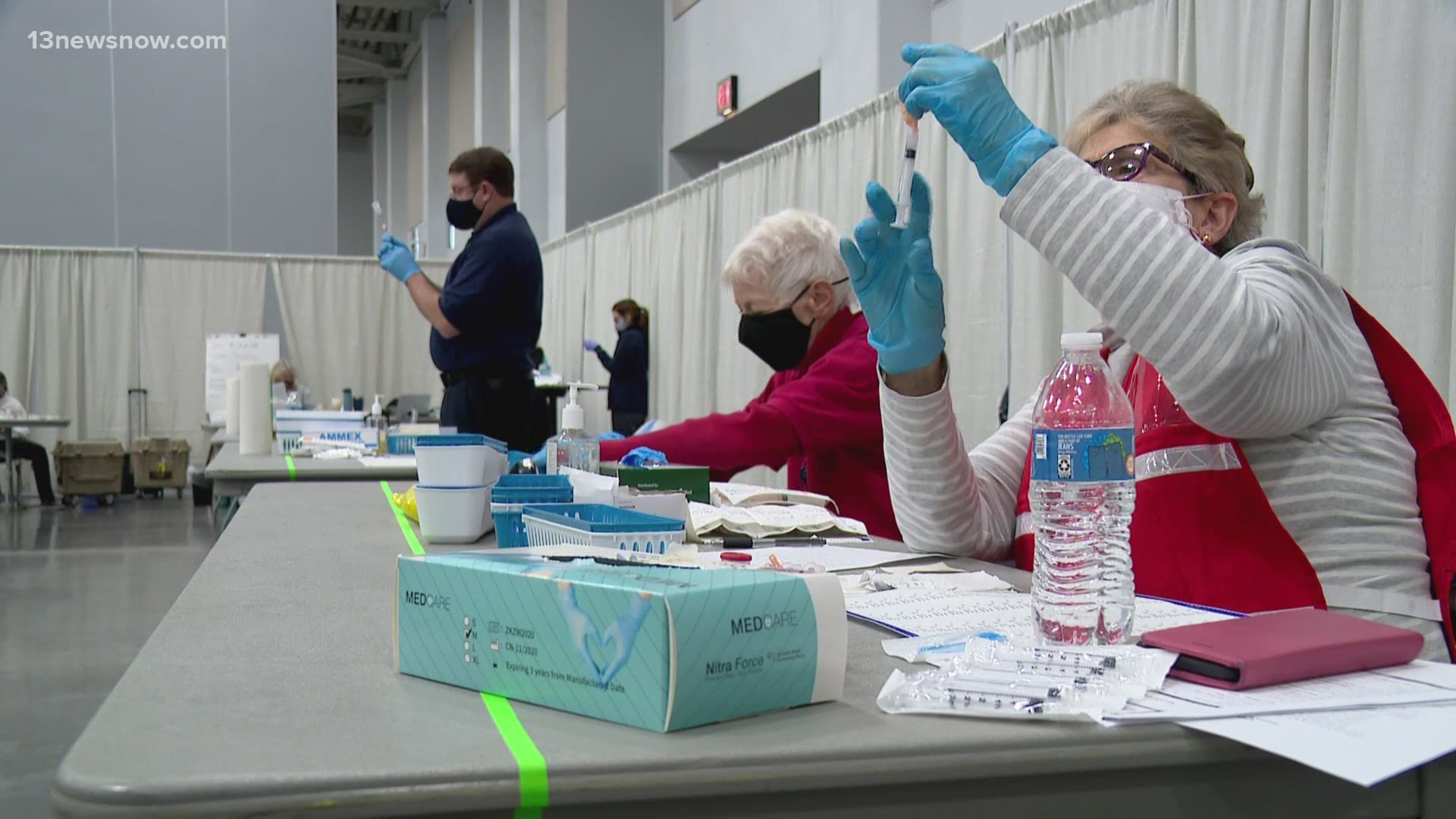NORFOLK, Va. — Virginia Beach leaders nearly canceled the city’s COVID-19 vaccination clinic Monday, and had to borrow about 2,000 vaccine doses from Sentara Healthcare to stay on track.
Winter storms delayed vaccine shipments across the country, forcing Virginia Beach to scramble for the shots.
Bob Engle, the Virginia Beach Department of Public Health emergency coordinator, said he picked up the shots from Sentara on Monday morning so Virginia Beach didn't have to cancel thousands of appointments.
"It highlights how vulnerable our supply chain is. We’re getting just-in-time vaccine and getting it out as fast as we can, and any interruption from weather or anything other thing, that affects supply chain and our clinics," Engle said.
Virginia Beach will reimburse Sentara Healthcare the same amount of doses once it receives its delayed shipment.
“We will return those 2,000 doses to them so they can use them as they were planned for," Engle said.
Virginia Beach is giving out about 7,700 second doses at its Convention Center this week, compared to 3,300 first doses.
Engle said the city is giving out more second doses because the Pfizer and Moderna vaccination cycles are overlapping, and Virginia Beach needs to provide second shots to people who got a vaccine through an additional Sentara allotment in January.
Virginia Beach is also giving a few thousand first doses to physicians' groups, doctor's offices, pharmacies and dialysis centers for distribution this week.
Barb Moran, a Virginia Beach resident, got her second shot at the Virginia Beach Convention Center on Monday.
“I want to do my part to have us get somewhat back to normal and make our lives easier - and maybe not wear masks all the time anymore," she said.
Moran said it was a much quicker process than when she received her first dose on the day vaccinations expanded to Group 1B in Virginia Beach.
“It was fantastic - everyone is friendly, it's very efficient, there's no waiting anywhere," she said.
Public health leaders said they still want more vaccine doses each week, and they expect the supply to greatly increase near the end of March and early April.

